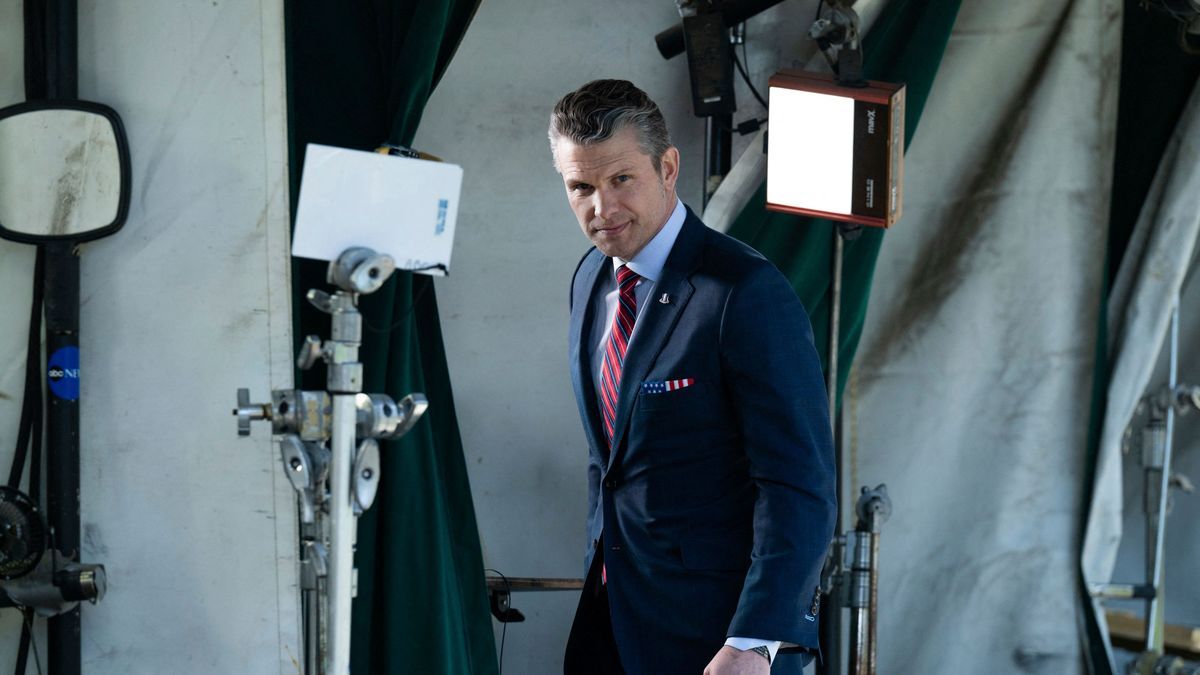EDIT: Since I’ve posted this, an English language version of the article has been published. Here is the link. @Mods: please let me know if I should replace it in the in the URL field as well, I’m going to leave it as is for know,
Article both in German and behind a paywall. I’ve translated the most relevant parts:
Donald Trump’s most important security advisors discussed a military strike via signal chat. Research by [the German magazine] SPIEGEL now shows that the problem is even bigger. […] Private contact details of US President Donald Trump’s most important security advisors are available on the internet. Research by SPIEGEL revealed mobile numbers, email addresses and, in some cases, passwords.
For the research, information from commercial personal search engines and customer data published online was used. National Security Advisor Mike Waltz, US Intelligence Coordinator Tulsi Gabbard and Secretary of Defense Pete Hegseth are demonstrably affected by the leaks.
Most of the publicly accessible numbers and email addresses are probably still being used by those affected. Some of them are linked to profiles on Instagram and LinkedIn, among others. They were used to create Dropbox accounts and profiles in apps that track running data. There are WhatsApp profiles for the respective phone numbers, and in some cases even Signal accounts. […] It is therefore conceivable that foreign agents were reading along when Gabbard, Waltz and Hegseth discussed a military strike in a signals chat with others.
Original German text
Donald Trumps wichtigste Sicherheitsberater diskutierten einen Militärschlag per Signal-Chat. SPIEGEL-Recherchen zeigen nun: Das Problem ist noch größer. Private Kontaktdaten der wichtigsten Sicherheitsberater von US-Präsident Donald Trump sind im Internet einsehbar. Recherchen des SPIEGEL förderten Mobilnummern, Mail-Adressen und teilweise Passwörter zutage.
Für die Recherche wurden Informationen aus kommerziellen Personen-Suchmaschinen sowie im Netz veröffentlichte Kundendaten genutzt. Betroffen von den Leaks sind nachweislich der Nationale Sicherheitsberater Mike Waltz, US-Geheimdienstkoordinatorin Tulsi Gabbard und Verteidigungsminister Pete Hegseth.
Die meisten der öffentlich abrufbaren Nummern und Mail-Adressen werden von den Betroffenen wohl immer noch genutzt. Sie sind teilweise mit Profilen unter anderem bei Instagram und LinkedIn verbunden. Mit ihnen wurden Dropbox-Accounts und Profile in Apps angelegt, die Laufdaten tracken. Es finden sich zu den jeweiligen Telefonnummern WhatsApp-Profile, teilweise sogar Signal-Accounts. […] Es ist daher denkbar, dass ausländische Agenten mitlasen, als Gabbard, Waltz und Hegseth in einem Signal-Chat mit anderen einen Militärschlag besprachen.



Maybe i am naive, but i would think that looking for compromises on personal accounts would be part of a security on-boarding process. Even if they don’t discuss sensitive information on their personal accounts. If for instance a foreign agent gets to read them sexting their affairs that creates quite some blackmail material.
I assure you you’re not naive. They didnt do background checks or security onboarding for the cabinet “because it would take too long”.
https://www.wxow.com/news/trump-s-team-skips-fbi-background-checks-for-some-cabinet-picks/article_62c6ad20-5a99-58c4-a5b5-9004725607d9.html
https://www.whitehouse.gov/presidential-actions/2025/01/memorandum-to-resolve-the-backlog-of-security-clearances-for-executive-office-of-the-president-personnel/
This kind of thing used to be a big deal. There were some kind of exotic custom-hardened Blackberries that the top people got as their personal devices, specifically so the national security apparatus could have some kind of a prayer of keeping them secure against this stuff.
Being in an office like the US president is weird. You’re kind of the boss, but you’re also kind of an employee. Your employer gives you tons of restrictions some of which really are pretty irritating or restrictive, but it’s for a good reason. It’s a big deal. The kind of responsibility you carry is so globe-spanning that some of your personal preferences go straight to the back of the line. Of course, that was all when the system is functioning properly and keeping us safe from violent adversaries. Now the people in charge are violent, corrupt morons who are openly in league with our adversaries. Why would they be trying to keep us safe from them, even if they even could grasp the issues involved? Where that all might lead is pretty hard to say but it’s for fucking sure not good.
I think it’s about respect as much as convenience.
If security guys told Biden, or Bush, or maybe even 2016 Trump he had so do something, he’d nod his head and do it.
Now? They don’t trust them. They actively rejected protocols and norms when transitioning because they didn’t trust the Biden government. They very explicitly don’t trust the US Intelligence community. They don’t trust scientific institutions or other parties in their own government.
That’s different than being corrupt. That’s drinking the kool aid of a very toxic information environment, and I think that’s even more dangerous, as it compromises their own incentives for survival.
This is just a small example of that.
Yeah. When you’ve been handed free wins all your life, it’s genuinely confusing to you when someone talks about it being important to play smart. “No, we just do whatever we want and win anyway. That’s how it works.” Until it doesn’t…
Yes of course. Trying to dig up people’s skeletons before spies do has been happening way before the internet, and I would have assumed the government would have tried to “sweep” their personal accounts for vulnerabilities.
But… well, there were some warning signs of resistance to this just after the election:
https://www.axios.com/2024/11/26/trump-transition-white-house
They don’t trust the institutions they run.